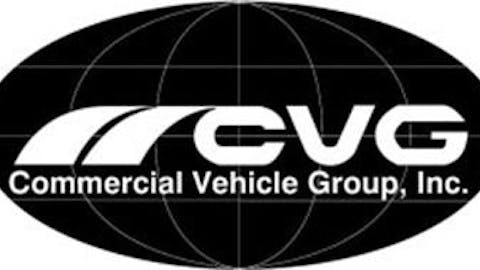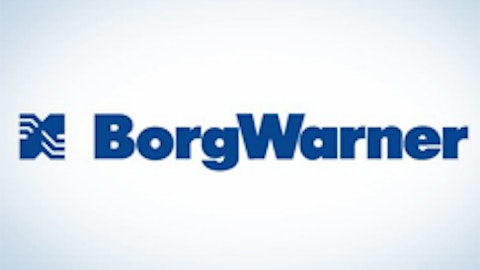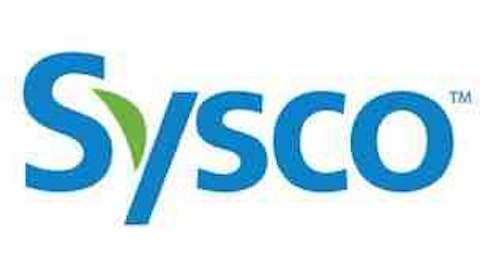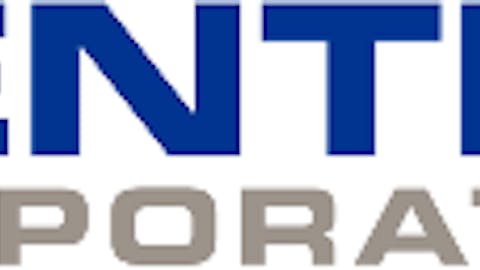The last economic recession put Chicago-based automakers in check; given their importance to the US economy, the federal government came to rescue them. Many thought it would be the end of several worldwide known brands. The skeptics were finally proven wrong and, from the ashes, the automakers rose like the Phoenix, shouldering the recovery of many auto parts producers and distributors. Some of those companies pegging onto automakers revival are: Tenneco Inc (NYSE:TEN), Magna International Inc. (USA) (NYSE:MGA), and Genuine Parts Company (NYSE:GPC).
A company of the Chicago area

Rising gas prices, as in the 1970’s, have curbed customer preferences for smaller and more efficient vehicles. In turn, lighter cars have pushed SUV’s to the side, lowering demand for car parts. Such market behavior has negatively impacted Magna International Inc. (USA) (NYSE:MGA)’s future prospects. And, even though the company´s balance sheet was affected by economic slowdown, today it shows great signs of recovery. All its fundamentals are close to historical highs, there is no outstanding debt, and cash has begun to steadily flow inward. So, the company has the necessary financial strength to embark on the necessary R&D to satisfy new government regulations and customer demands. Also, as suppliers merge in order to satisfy automakers’ demands for fewer providers, Magna International Inc. (USA) (NYSE:MGA) is in an advantageous position thanks to its wide portfolio and client regional concentration.
An old proverb warns not to place all your eggs in one basket. The proverb’s aim is to advise individuals against concentrating risks. Magna International Inc. (USA) (NYSE:MGA) seems not to have heard this, and for the same reason has been affected by the recent economic slowdown harder than competitors. The point is Chicago-based automakers count for 50% of Magna’s sales. This dependence on Chicago automakers makes Magna highly liable to U.S. economic downturns, as the last economic slowdown has proved. The other 50% is mostly located in another market that has suffered the consequences of the U.S. economics – Europe. The good news is automakers, and providers, are recovering together with the economy as a whole. The recovery can be seen in the progressive increase of the company’s stock price, which has reached an all-time high. Given Magna’s current price and conservative estimates due to world economic uncertainties, it is recommended to hold.
Taking advantage of new emission regulations
Tenneco Inc (NYSE:TEN) has two main differences with respect to Magna: diversified clients and an established emissions control segment. These characteristics make Tenneco less vulnerable to U.S. economy downturns, and well-suited to take advantage of new emission regulations. Also, clients in developing countries have been experiencing a surge in sales, helping curve the negative effects of the U.S. and European economies on the company’s balance sheet.
Magna has a relevant position within the European market, accounting for 40% of its sales. The remaining 60% is distributed among the Chinese and North and South American markets, giving the company an edge on lighter vehicles over competitors. The advantage is not from less exposure to U.S. and European economic downturns, but from the increase in sales of light vehicles in South America and Asia. Also, Tenneco Inc (NYSE:TEN) was able to decrease the likelihood of being replaced by recruiting many clients and serving different auto segments, thus establishing a high obstacle to competitors and a high price for automakers. Last, new emission regulations will give the company an opportunity to maintain a leading position within the industry, thanks the aforementioned emissions control segment.
Nevertheless, not all is air-clean for Tenneco Inc (NYSE:TEN). Although the company was able to establish a world-wide-web with automakers, its aftermarket demand is not as high. In other words, the company provides for automakers, not auto-owners. Also, there is not much to be invented in the business and improvements are imitated by competitors, limiting returns on R&D.
Tenneco Inc (NYSE:TEN), however, has overcome many market and competition obstacles, reflecting such victories upon its financial fundamentals. Historically, the company seems to be at an all-time high, and as noted by MorningStar, the company has increasingly reduced its debt from 4.2 to 2.5 times –making it a historical high. In conclusion, given Tenneco’s cheaper stock price, lesser client and financial exposure when compared to competitors, it is recommended to buy.
Main player in the auto parts industry
Genuine Parts Company (NYSE:GPC) will be the greatest auto parts distributor in North America and Australia as of next month, after completing the acquisition of Exego. The company’s business is to manufacture and deliver auto parts, and it counts with the largest truck fleet to accomplish the mission. But, even as cars turn old and replacements are needed, car manufacturers modifying marketing and service strategies strongly impact Genuine’s future prospects.
More products, new markets, and operational costs cuts have had a positive impact on the company’s overall finance sheet. Throughout 2012, Genuine Parts Company (NYSE:GPC) increased earnings and saw a cash increment of 45%. During 2013, the company has achieved well above historical average profitability and financial figures. Such numbers are proof of the positive effects acquisitions had on balance sheets and market share.
The time for auto parts distributors, regardless of their size, seems to have reached its highest peak. Genuine Parts Company (NYSE:GPC)’s P/E ratio has been standing still and the reason may be found in the automotive structural changes. During economic slowdowns, average miles driven are cut short and the demand for auto parts replacements decreases. On the other hand, during economic upturns, individuals prefer to buy a brand new car. Brand new cars offer longer guarantees and specialized assistance, leaving the middleman out of the equation.
The garage days are over. With new cars incorporating ever more complex technology, individuals will be required to incorporate more technical knowledge, affecting the capacity to fix one’s own car in the garage. Also, retail shops have begun to cut short the middleman, going straight to the manufacturer while the price of Genuine Parts Company (NYSE:GPC)´s stock remained on the rise. Last, in the face of a relatively expensive stock with poor prospects for the years to come, it is recommended to hold this stock.
Botton line
In order to have a sense of the three stocks analyzed here, you must have an eye on the auto industry. It is impossible to dissociate automakers for auto part distributors. Nevertheless, it is also necessary to understand the market share of each and the geography on which each operates. Those who place all the eggs in the same basket are exposed and may be taken out of the game very easily. Chicago automakers surely have felt the economic downturn, but not all automakers are based out of the Windy City. Tenneco seems to have misunderstood the proverb and suffered a bad turn in the U.S., but also the uptrend in developing countries.
Damian Illia has no position in any stocks mentioned. The Motley Fool has no position in any of the stocks mentioned.
The article The Great Recovery Of The Auto Industry originally appeared on Fool.com and is written by Damian Illia.
Damian is a member of The Motley Fool Blog Network — entries represent the personal opinion of the blogger and are not formally edited.
Copyright © 1995 – 2013 The Motley Fool, LLC. All rights reserved. The Motley Fool has a disclosure policy.





